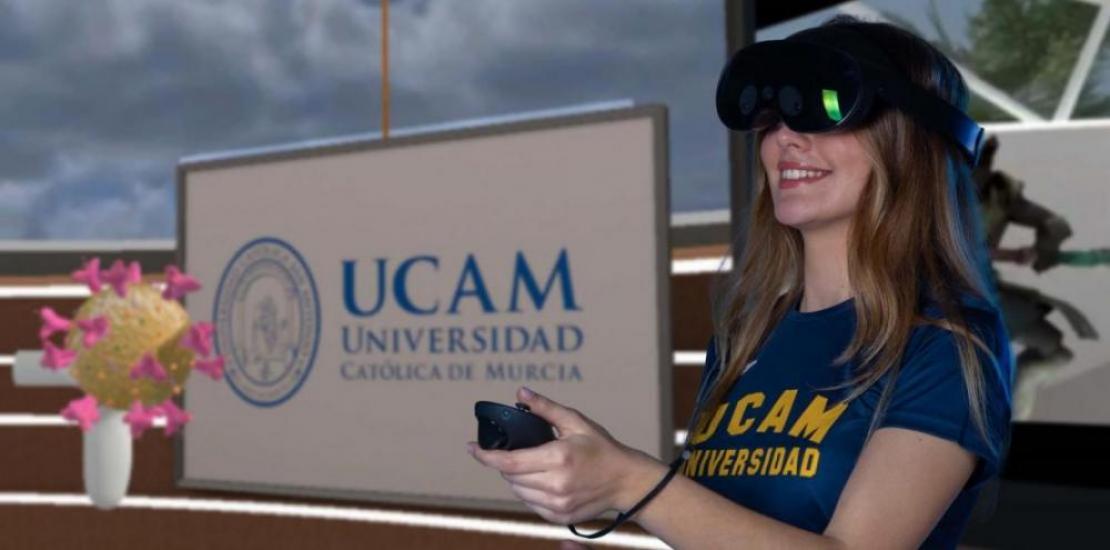70% of students learn more by using virtual and augmented reality technologies
Research carried out by UCAM Faculty of Education shows that the use of these resources helps to understand abstract concepts and to develop problem-solving skills, as shown in a study performed on 400 university students.
José Ortí, UCAM researcher , studied the potential of Virtual Reality (VR) and Augmented Reality (AR) technologies with 400 students from the UCAM Bachelor's Degrees in Primary and Early Childhood Education. The purpose of this research was to determine whether the use of VR glasses and the inclusion of AR practical lessons could help students increase the development of skills, especially those related to logical-mathematical concepts and problem solving in the university environment.
After two years of research, students who used these technologies in their lessons obtained 70% better results compared to those who followed their lessons the ordinary way.
‘This type of digital tool allows us to establish a link between the university and our own professional reality. Mathematics are physical quantities, words and also symbolic language, and these technologies facilitate the logical relationship between all concepts of the subject. It is interesting to see how VR and AR technologies act as a type of support from the concrete to the abstract,’ said Dr José Ortí in his study.
Given the positive results obtained, the UCAM researcher now suggests that this level of improvement in the knowledge of university students can be extrapolated to primary school students. To verify this, he has already begun to carry out several studies to determine the level of improvement in education that could result from the inclusion of VR and AR in schools in the Region of Murcia.




